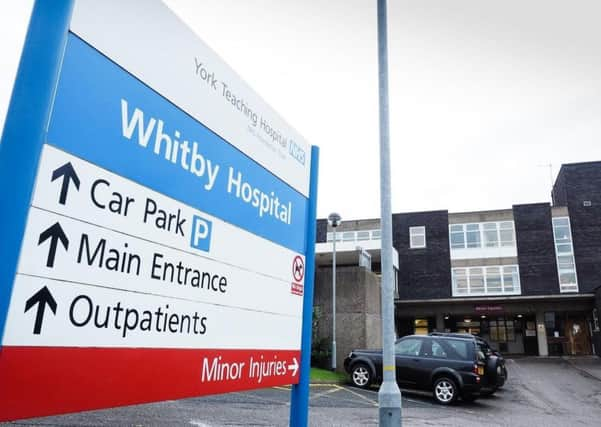When will NHS cuts end? Jeremy Hunt is dismantling our health service by stealth


Slowly, but surely, the NHS is being broken up. It’s reported that this latest outrage on the Yorkshire coast will see the entire outpatients department at Whitby Community Hospital axed because it is no longer “financially viable”. This means at least 600 clinics, covering everything from obstetrics to orthopaedics, will close their doors next year.
Unless a new provider is found, patients, including pregnant women, children and the elderly, will be forced to make at least a 20-mile journey to the nearest hospital to attend their appointments. Anyone who has ever had to make a 20-mile journey out of Whitby, even in the best of health, will know that the roads can be treacherous, especially in winter. And as for public transport? It’s limited to say the least.
Advertisement
Hide AdAdvertisement
Hide AdAnd what about the personal cost to patients? Not just in terms of putting further stress on individuals who are already not well, but financial too. Is Health Secretary Jeremy Hunt going to reimburse petrol money and parking fees and time spent off to work to travel to York or Scarborough or Middlesbrough? I don’t think so.
I’m sorry, but placing already vulnerable patients at risk is downright thoughtless and irresponsible. I don’t care how NHS managers and politicians spin it, but hard facts must be addressed. The trust which oversees Whitby Community Hospital is in dire financial straits. Latest figures for 2017-18 reveal it is running a deficit of around £21m – around £14.5m worse than expected. For the first time in history, it has been forced to take out a £17m loan to cover its costs.
I’m no politician, nor am I a NHS financial manager. I don’t profess to understand complex funding models, but I do understand one thing. Whatever is being put in place to run the health service effectively is clearly not working when local hospitals are being forced to cut services which directly benefit local people.
I’ve heard the justification for this kind of compromise before. A few weeks ago, it was announced that the emergency stroke care unit at my own local hospital, Barnsley District General, will be phased out by 2019.
Advertisement
Hide AdAdvertisement
Hide AdWith two elderly parents not in the best of health, I’m particularly aggrieved. I’d always been led to believe that if stroke occurs, the key factor in treating it is speed. I’m no doctor either, but I would have thought that being rushed by ambulance to your nearest hospital, instead of being shipped 15 miles down the motorway to Sheffield, would be a priority.
NHS England says that concentrating emergency, or “hyper-acute” care, at the big teaching hospitals in our nearest city will offer patients a stronger chance of recovery, because these units have the wherewithal to attract the most highly-trained staff. I can see the point, but it doesn’t make it right.
What about all the staff who work in the existing hyper-acute stroke unit in Barnsley? It’s said that some specialists and nurses may transfer elsewhere, and if so I wish them luck. However, what this plan – and the plan in Whitby, Huddersfield and elsewhere – fails to take into account is that the local hospital is a major employer in countless towns across the land.
When specialist units go and clinics close, jobs are lost too. This has the potential to devastate not only families, but the local economy as a whole. In today’s hard world there are no favours, but much more thought towards the wider implications of harsh cuts to hospitals is required by the Government. It says it is committed to regional growth; if so, it should look to what a region should offer to those who live and work there.
Advertisement
Hide AdAdvertisement
Hide AdAll of this should sound alarm bells to anyone who takes their local hospital for granted, or worse, complains about it. We should appreciate what we have on our doorstep and support it whilst we have the chance. The welfare of patients, who should come first, is being sacrificed in a programme of reform which – at best – seems contradictory, at worst downright dangerous.
For example, in Whitby, the hospital is actually in the process of undergoing major redevelopment which is promising to offer better care to patients. Where is the sense in carrying on with this plan and cutting vital services at the same time? But then again, I’m just another taxpayer bamboozled by the total lack of logic behind the long-term strategy for the NHS overseen by the Secretary of State for Health.
There simply isn’t the space here to debate just what he thinks his ministerial remit actually is, or where his priorities should lie. What I will say is that what is happening to hospital services in Yorkshire is happening all over England. And it signals only one thing. Our health service, once the pride of the world, is being dismantled, bit by bit. To paraphrase T.S. Eliot’s 1925 poem The Hollow Men: “This is the way the NHS ends, not with a bang but a whimper.”